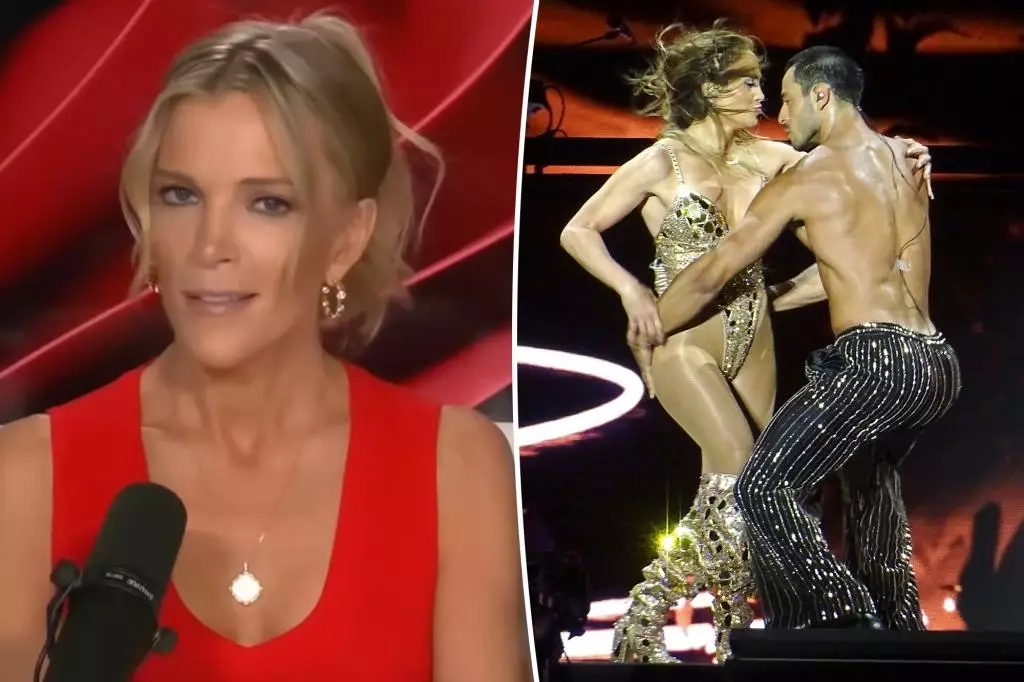Megyn Kelly’s recent comments on Jennifer Lopez’s performance exemplify the pervasive influence of outrage culture in today’s media landscape. Kelly’s sharp critique, branding Lopez as a “soft porn star,” underscores how easily public figures are subjected to harsh judgment based on their appearance and stage presence. This incident reflects a broader societal tendency to scrutinize female performers through a lens that commodifies their sexuality and moral worth. Kelly’s choice to repost and comment on a live performance reveals a tendency to weaponize personal opinions, often cloaked in humor, to elevate or diminish celebrities’ legitimacy. Such actions perpetuate a climate where performers are increasingly held accountable for their self-expression, regardless of artistic intent or audience reception.
The Double-Edged Sword of Social Media Commentary
Kelly’s comments sparked a polarized response, illustrating how social media has transformed private opinions into public spectacles. Supporters praised her candor, while critics argued her remarks were mean-spirited and rooted in jealousy. The incident exposes the fragility of celebrity status, where even admiration for physical beauty can be weaponized against someone’s reputation. Furthermore, the backlash highlights societal reluctance to accept bold self-presentation and sexuality in entertainment, particularly from women. Kelly’s framing of Lopez’s performance as inappropriate, despite its artistic and entertainment value, underscores a conservative tendency to police female sexuality prematurely and emphatically.
The Broader Implications of Judging Female Empowerment
Kelly’s critique reveals a deeper discomfort with women embracing their sexuality openly. Lopez’s stage persona — confident, seductive, and unabashed — challenges traditional notions of decorum that conservative commentators often uphold. The defense mounted by followers who praised Lopez’s physique and dancing underscores a societal shift towards accepting and even celebrating female sensuality. Yet, critics like Kelly interpret such displays as gratuitous or inappropriate, exposing an ongoing cultural debate: should women be empowered to own their sexuality, or is that inherently provocative? Kelly’s commentary, rooted in moral judgment, exemplifies how public discourse often oscillates between these competing narratives, often favoring regulation over acceptance.
The Personal and Cultural Biases in Critical Discourse
Kelly’s criticism also gestures toward her own biases and discomfort with contemporary expressions of gender and sexuality. Her previous remarks about Sydney Sweeney’s physical appearance and Lauren Sánchez’s fashion choices suggest a pattern of viewing female empowerment through a lens of superficiality and moral scrutiny. This pattern highlights how media personalities often project their personal discomfort onto broader cultural phenomena. Kelly’s tendency to ridicule and demean, rather than appreciate or analyze, reveals a conservative tendency to control narratives around female bodies and expressions of sexuality. Such critique not only diminishes the performers’ agency but also feeds into a toxic cycle of slut-shaming and superficial morality, which hampers genuine conversations about gender, art, and freedom of expression.
Challenging the Cultural Narrative
Ultimately, Kelly’s remarks serve as a microcosm of larger societal debates about decency, sexuality, and authenticity. While her critique may resonate with certain audiences nostalgic for more conservative norms, it also exemplifies a failure to understand or accept the evolving landscape of entertainment. Women like Lopez continue to push boundaries, challenging outdated standards and opening dialogues about empowerment and self-expression. Instead of condemning performance choices, critics should focus on fostering an environment that respects individual autonomy. Kelly’s failure to do so underscores how personal biases, when amplified publicly, can inhibit cultural progress and stifle honest discourse about what it means to be true to oneself in a rapidly changing world.

